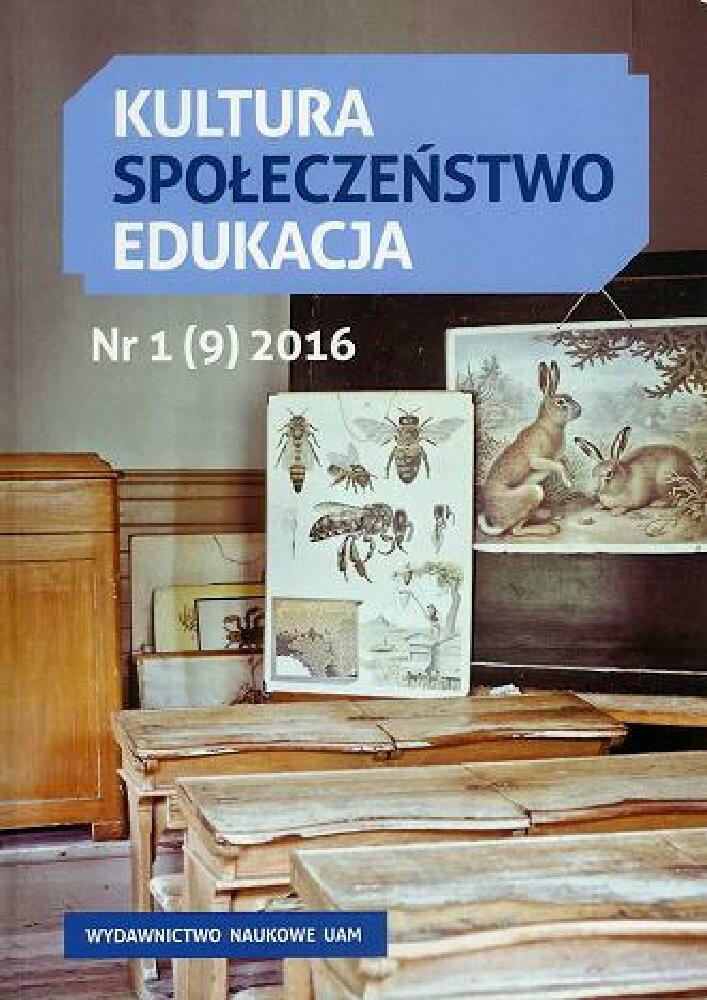Abstrakt
Nowadays, more and more fields of knowledge undertake research on homosexuality issues. Analysis of that topic takes place on many basis depending on researcher’s subject of interest. Pedagogy peculiarly concentrates, among other things, on individuals’ relations with their origin families – the combination of non-heteronormativity and functioning in family environment in the context of life’s quality is a new approach which, so far, had been poorly described.
Presented article aims to deliver knowledge and findings connected to quality of life of homosexual women to extent of their relations with family members. The research was conducted in accordance with qualitative trend, mainly by individual case method. The applied technique was an interview and the data collection instrument was its questionnaire. The examined group included eight intentionally selected women that come from podlaskie and śląskie provinces. Gathered information was transcribed, coded and categorized within the scope of selected elements of construct such as life quality. Women’s statements were presented in accordance with descriptive-comparative approach, so firstly, their subjective feelings had been described and then that report was related to some objective factors. Depicted results are the part of the answer on research problem which is: ‘how interpersonal relations of homosexual women are created?’.
Analysis and interpretation of gathered data show three models of relations appearing between questioned women and their families of origin, those are: acceptation of non-heteronormativity, ignorance of that sexual orientation, repression/avoidance of receiving an information about homosexuality with sporadic attempts at ‘converting’ their daughters/sisters.
Women who were accepted by their families (two of them) are characterized by high subjective and objective level of life quality to extent of interpersonal relations, social life and mental condition. Those who did not ‘came out of the closet’ to their relatives (another two) and those who were rejected by them (four of them) are described as women with low level of quality of life among contacts with other people (objective factors), but some of them think differently – they describe those relations as positive. That discrepancy in evaluation might be a result of using so-called tactic of apparent mysteriousness – questioned women and members of their families pretend that homosexuality does not exist.
The family relations are disordered in most cases; because of it life quality of homosexual women is lower than other members of our society. Appropriate education in terms of toleration could improve their situation, what is more, forming support groups for parents with non-heternonormative children also might help.
Bibliografia
Błasiak A. (2012). Oddziaływania wychowawcze w rodzinie. Zagadnienia wybrane. Kraków.
Boguszewski R. (2013). Rodzina – jej współczesne znaczenie i rozumienie, http://www.cbos.pl/SPISKOM.POL/2013/K_033_13.PDF, dostęp: 21.01.2016.
Brągiel J., Kawula S. (2014). Więzi społeczne w rodzinie. [W:] J. Brągiel, S. Kawula, A.W. Janke (red.). Pedagogika rodziny. Obszary i panorama problematyki. Toruń.
Daszykowska J. (2007). Jakość życia w perspektywie pedagogicznej, Kraków 2007.
Długołęcka A. (2005). Pokochałaś kobietę… Warszawa.
Izdebska J. (2015). Dziecko – dzieciństwo – rodzina – wychowanie rodzinne. Kategorie pedagogiki rodziny w perspektywie pedagogiki personalistycznej. Białystok.
Ostasiewicz W. (2004). Ocena i analiza jakości życia. Wrocław.
Whitley B.E. Jr. (2011). Gender – role variables and attitudes toward homosexuality. http://business.highbeam.com/435388/article-1G1-89238991/genderrole-variables-and-attitudestoward-homosexuality, dostęp: 21.01.2016.
Woynarowska B. (2003). Jakość życia. [hasło w:] T. Pilch (red.). Encyklopedia pedagogiczna XXI wieku, t. II. Warszawa.
Licencja
Prawa autorskie (c) 2017 Marta Dziarnowska

Utwór dostępny jest na licencji Creative Commons Uznanie autorstwa – Bez utworów zależnych 4.0 Międzynarodowe.
